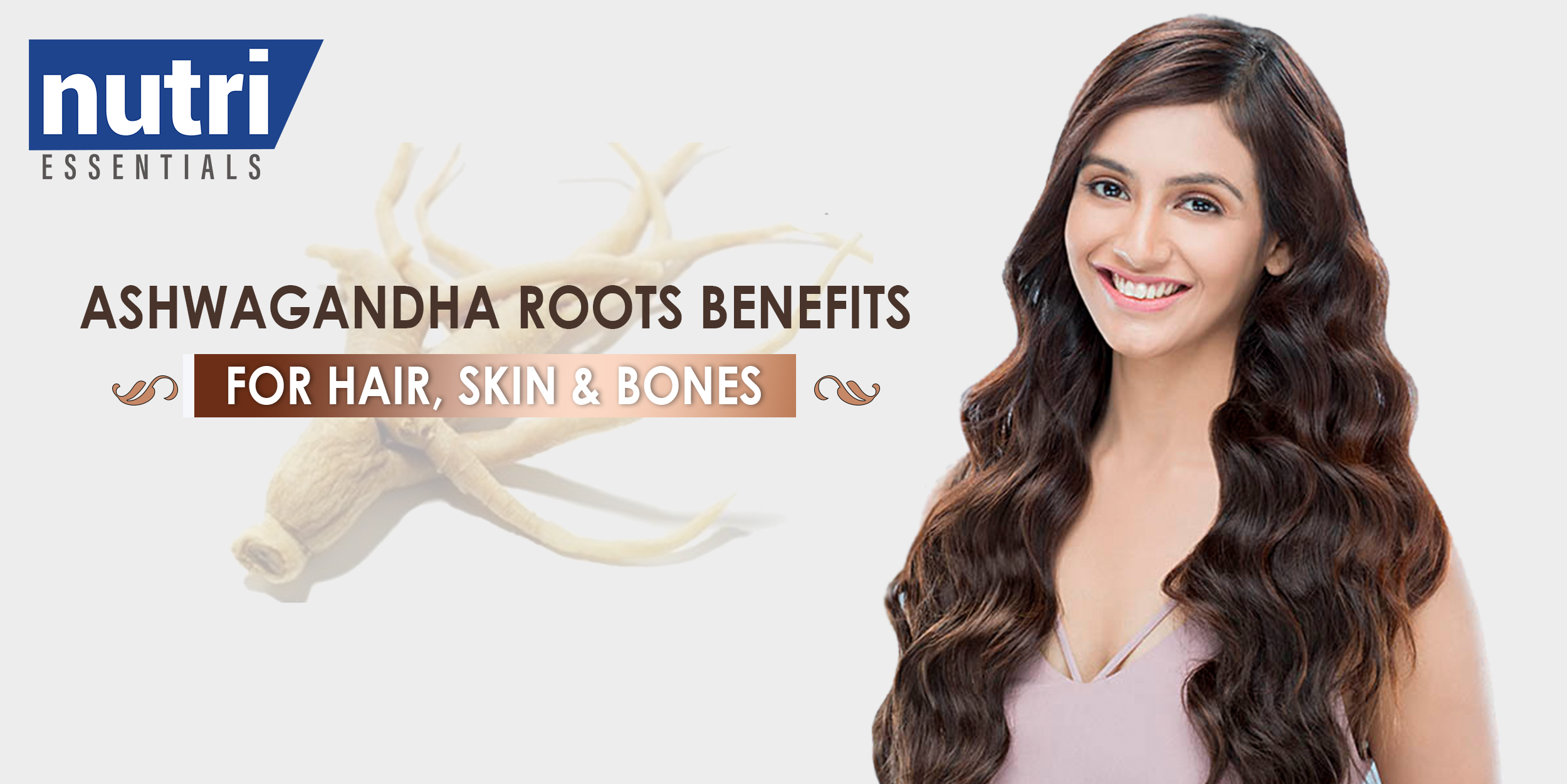Quality products for you & your family to stay ahead in life.
Ashwagandha Roots Benefits for Hair, Skin & Bones

Jan 6, 2022
By
NutriEssentials
0 comment(s)
Ashwagandha has always been recognized very well in Ayurveda and other conventional medical treatments. As the name suggests, it carries a strong smell like a horse, due to which it got its name Ashwagandha, Ashwa means horse, and gandha means smell. As Ashwagandha has the quality to provide strength, it is also considered equivalent to communicating strength like a horse. Withania somnifera, commonly known as Ashwagandha, is a plant from the nightshade family known as Indian ginseng or winter cherry.
Ashwagandha is gaining popularity again due to its positive effects on hair, skin, and bones. So let's explore more on this.
Benefits for hair
- Stress hormones such as cortisol cause your hair follicles to malfunction, resulting in hair loss. This herb reduces cortisol levels in the body and thus stops hair loss and follicle damage. Ashwagandha is well known for preventing hair loss caused by hormonal imbalances. Additionally, the herb is known for its natural mood-boosting properties that reduce hair loss by preventing stress and anxiety.
- Ashwagandha is well known for strong anti-inflammatory properties that enhance the overall health of the hair. In addition, its anti-inflammatory properties also cure scalp ailments generally caused by inflammation, including eczema, psoriasis, dandruff, etc.
- Ashwagandha increases DHEA production (Dehydroepiandrosterone), the eventual antioxidant in your body. The antioxidant qualities of Ashwagandha also encourage healthy hair growth by fighting free radicals released from the scalp and hair follicles.
- The amino acid in Ashwagandha stimulates the follicles in hair that help make melanin and further restore melanin and reverse premature hair greying.
- Ashwagandha contains essential compounds for hair growth. Furthermore, it helps deliver nutrients to hair follicles by increasing blood circulation in the scalp.
Skin
- Ayurvedic herbs, including Ashwagandha, work as skin rejuvenators that can be used inside and via products that contain them. Ayurvedic Rasayanas are a great way to fight the harmful effects of pollution on our skin and entire body. They help the skin cells to revitalize and rejuvenate. Herbs like Ashwagandha control collagen reduction and smoothen fine lines to uphold the plumpness of skin and are excellent antioxidants that fight free radicals in the environment.
- Some high-performing ubtans already contain Ashwagandha in appropriate quantities with other potent, sun-dried herbs and roots.
Bones
- Withaferin A, the most important element of Ashwagandha, has increased the explosion of cells that synthesize bone. Ashwagandha has been found to increase the appearance of the particular genes that help mount the number of osteoblasts or cells that manufacture bones and the genes that mineralize the bones. It also promotes the survival of osteoblasts and suppresses the proteins that endorse inflammation.
- Ashwagandha reduces bone damage by reducing cortisol levels as well as inflammation. Stress produces cortisol, which has a damaging effect on bones as it increases bone resorption and decreases the rate of new bone formation. Inflammation, which is provoked by high cortisol levels, is also known to cause osteoporosis.
- Ashwagandha increases bone mineral density by forming new bones and keeping the bone tissues from being broken down and absorbed into the blood.
- It has been found that withaferin A in Ashwagandha blocks the action of protein complexes that break down other proteins and thus promote healing after injury and increase bone mineral density.
..

